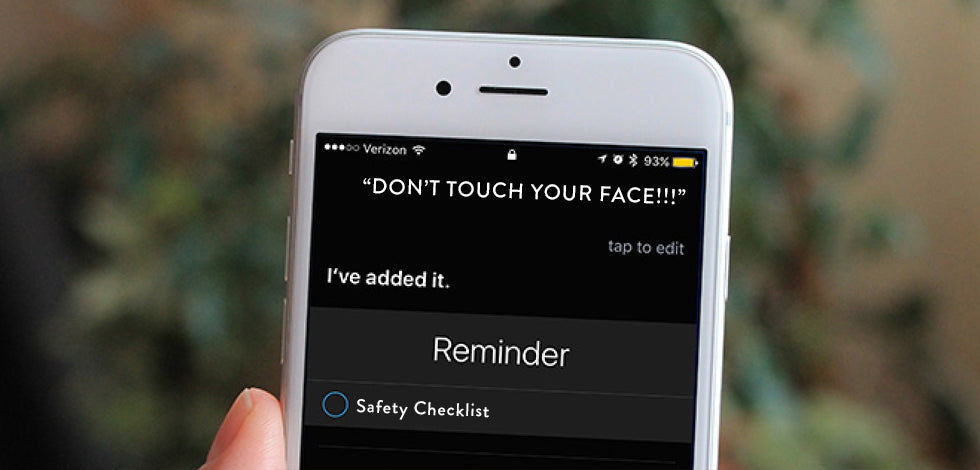Sometimes the easiest practices are the hardest to follow. The same goes for touching your face. Either consciously or subconsciously, you keep touching your face throughout the day. But do you know that touching constantly touching your face can run the risk of getting an infection? Recently, there has been a severe outbreak of coronavirus globally that is raising fears about a pandemic. Not touching your face unless required is a mantra during any flu season, but with the coronavirus outbreak, it has become a mandatory criterion.
Why Is It Important Not To Touch the Face?
Researchers estimate that an average person touches his face about 23 times per hour (that comes to around once every two-and-a-half minutes). When you touch your face with dirty hands, microorganisms gain entry to your body and take up residence in the mucous membrane, which can lead to infections.

Research studies reveal that nearly 44% of the face touches involve contact with the mucous membrane, including the nose, eyes, and mouth. That can be a significant concern as those are the pathways for viruses and bacteria to enter your body.
The risk of transmitting a virus from your hands to face depends on several factors like:
- Type of virus
- Porosity of the surface
- Time for which the infection was left behind
- Ambient temperature and humidity levels
The American Academy of Ophthalmology has found coronavirus in eye secretions, including conjunctival secretions.
In general, a virus survives the longest on a non-porous surface such as plastic and metals, including railings, counters, and doorknobs. It will die sooner on tissues and fabrics. Once the virus gets onto your hands, it will begin to lose potency. But it will survive long enough to get transmitted from your hands to your face. A research study showed that a small dose of coronavirus, when placed on the fingers of a participant, was viable even after three hours.
Prepare Reminders and Visual Cues

The ultimate objective of this step is to develop a more conscious habit. Set up a reminder on your phone that tells you not to touch your face, perhaps every hour. Put the same reminder on your bathroom mirror, or as a sticky note on your computer that conveys the same message. It might sound weird, but that is the best way you can remember not to touch your face without the need to do so.
Try Placing a Scarf Over Your Face
Healthy people need not wear a face mask, but wearing something similar on your face will help you to realize how often you are touching your mouth and nose. At least you will have something over your face that will remind you of not touching your face. In cold weather conditions, you can pull up the scarf a bit higher that will keep the hands away from your face.
Place the Hands in a Safe Place
When you are sitting idle, you are more likely to put the hands on your face. So, either place them gently on your lap, or keep the fingers interlaced to avoid the probable temptations of touching your face.
Practice Good Self-Care

Taking adequate rest, keeping the stress levels in a check, and having a clear cognitive state of mind will not only help to boost your immune system but also keep you more aware of not touching your face. Getting enough sleep and practicing slow deep breathing are some of the popular and commonly followed self-care techniques.
Cover Your Hands
Adorning your fingers with strips of tape or wearing cotton gloves on your hands will give a different sensation of touching your face than usual. This will alert you of your subconscious behavior of touching your face.
A Final Word of Advice
While touching your face is a strict no-no, you should follow some preventive measures that can restrict the possibility of getting infected by a virus such as the deadly COVID-19.

- Avoid touching your face, eyes, mouth, and nose with dirty hands.
- Keep your hands clean and wash them frequently. However, your hands stay clean only as long as you touch the next surface.
- Use an alcohol-based sanitizer to wash your hands if water and soap are not available.
- Get a flu vaccine every year to minimize the possibility of a virus attack.
- Avoid being close to people who are suffering from cold, cough, and sneeze.
Think of all the germ-filled things people touch all day – from car keys, cellphones, elevators, and doors, which are the breeding grounds for viruses, bacteria, and allergens. Try to avoid those things as much as possible, and you are likely to save yourself from the clutches of COVID-19.











